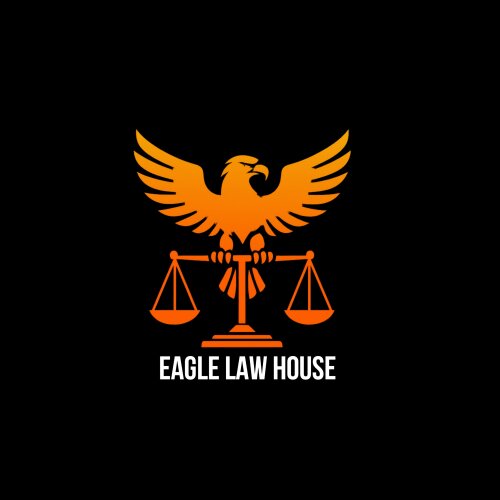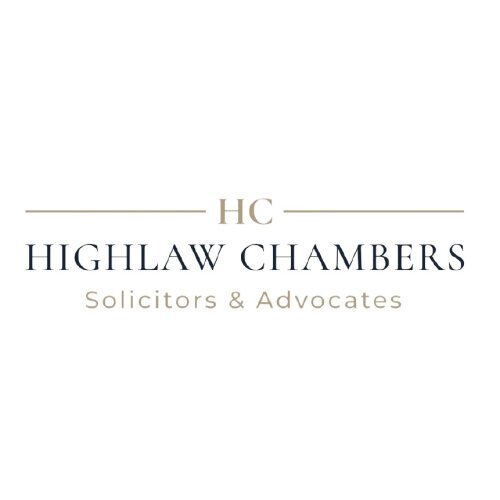Best Lawyers in Nigeria
Share your needs with us, get contacted by law firms.
Free. Takes 2 min.
Or refine your search by selecting a city:
List of the best lawyers in Nigeria
Legal guides written by Adeola Oyinlade & Co:
- Procedure and Requirements for Work Permit and Visas in Nigeria
- The Step-By-Step Procedure of How to Apply for Microfinance Bank License Online in Nigeria
- How to Ensure the Smooth Recognition and Enforcement of Foreign Judgments in Nigeria
Nigeria Legal Questions answered by Lawyers
Browse our 166 legal questions in Nigeria and read the lawyer answers, or ask your own questions for free.
- Divorce and child support
- My (ex) were legally married (registry) on the 19th of March 2011 (Southwest, Ibadan) and then afterwards had our nikkah on the 26th of same month and same year (Zaria, Kaduna). 13 years down the line, he took a second wife on the 22nd of November 2024 (nikkah in Kano)... Read more →
-
Lawyer answer by Eagle Law House
1. Your Marriage Status You were: - Legally married under the Marriage Act (registry marriage) on 19 March 2011 in Ibadan, AND - Subsequently had an Islamic nikah. Under Nigerian law, the statutory (registry) marriage takes priority. What this means:...
Read full answer - Divorce
- I want to seek a divorce wife my wife.
-
Lawyer answer by Eagle Law House
You would need to state the circumstances surrounding the matter and seek a lawyer's counsel. You can reach out to us.
Read full answer - LANDLORD
- My Landlord broke my door November and threw my things out when my rent was due. October 1 how do I proceed please
-
Lawyer answer by P.O OHIKHENA & Co
It is unlawful for your landlord to do so. If you have pictures of the incident, very good. Even if you don't, contact me so we can institute a matter in the court against your landlord.
Read full answer
Nigeria Legal Articles
Browse our 13 legal articles in Nigeria written by expert lawyers.
- How to File for Divorce in Nigeria: Step-by-Step Guide
- Nigeria recognises three main family law systems - statutory (Marriage Act and Matrimonial Causes Act), customary, and Islamic - and the rules that apply to your case depend on how you married and where you live. Statutory (court or church) marriages are generally monogamous and governed by the Matrimonial Causes... Read more →
- Procedure and Requirements for Work Permit and Visas in Nigeria
- Foreign nationals seeking to enter, work, or reside in Nigeria must meet the country's Immigration Rules. The Nigeria Immigration Regulations on work permits are outlined in the Immigration Act 2015 and the Immigration Regulations 2017. The agency responsible for issuing work permits to aliens is the Nigeria Immigration Service.Definition of... Read more →
- The Step-By-Step Procedure of How to Apply for Microfinance Bank License Online in Nigeria
- The Central Bank of Nigeria (CBN) has launched a new online platform for submitting microfinance bank (MFB) license applications, known as the CBN Licensing, Approval, and Other Requests Portal. The new online platform replaces the previous laborious approach of physically submitting MFB license applications to the CBN. These are the... Read more →
About Hiring a Lawyer in Nigeria
Hiring a lawyer in Nigeria involves a series of steps to ensure you select the right professional for your legal needs. First, you should determine the area of law relevant to your situation, as this will dictate the type of lawyer you require. Many legal professionals in Nigeria specialize in fields such as criminal law, family law, corporate law, or property law. To find a suitable lawyer, you can start by seeking recommendations from family or friends or conducting online searches to identify law firms with a good reputation. It's essential to verify the lawyer's credentials by checking with the Nigerian Bar Association. Once you have shortlisted potential candidates, arrange consultations to discuss your case and their fees. Always ensure there is a clear agreement regarding costs and the lawyer’s responsibilities before proceeding.
Why You May Need a Lawyer
Several common situations in Nigeria might necessitate legal assistance. If you are facing criminal charges, navigating a divorce, or involved in a child custody dispute, hiring a lawyer is crucial. Businesses in Nigeria often seek legal help for contract reviews, compliance with regulatory requirements, and handling disputes. Landlords or tenants may require legal guidance in property disputes. Additionally, if you are drafting a will, handling an estate, or involved in any civil litigation, a lawyer's expertise can be invaluable in ensuring your rights are protected and the legal processes are followed correctly.
Local Laws Overview
Nigerian law comprises various acts, constitutions, statutes, and judicial decisions. The Constitution of Nigeria is the supreme law and provides the legal framework regarding rights, legal processes, and governance. Key legal areas include criminal law, which outlines offenses and penalties; family law, which governs marital relationships and related issues; and property law, which deals with real estate transactions and ownership rights. Corporate law is particularly relevant for businesses, dictating company formation, governance, and operations. Understanding these laws is essential for individuals and organizations alike, and lawyers play a crucial role in navigating these often complex legal landscapes.
Frequently Asked Questions
How do I verify a lawyer's credentials in Nigeria?
You can confirm a lawyer's credentials by checking their registration with the Nigerian Bar Association, where they should have a valid practicing certificate.
What should I expect during the initial consultation?
During an initial consultation, you will discuss the details of your case, the lawyer's experience, potential strategies, expected outcomes, and fee structures. This session is also an opportunity to gauge if the lawyer is a good fit for your needs.
How are legal fees structured in Nigeria?
Legal fees in Nigeria can be structured in various ways, including hourly rates, flat fees, or contingency fees, where payment depends on the outcome. Ensure you have a clear agreement in writing.
Can I represent myself in a legal matter?
While you are allowed to represent yourself, having a lawyer can dramatically improve the chances of a favorable outcome, especially in complex cases.
What should I bring to a legal consultation?
Bring all relevant documents related to your case, including contracts, correspondence, and any previous court documents. Being organized can help the lawyer assess your situation accurately.
How long does a typical case take to resolve in Nigeria?
The duration varies depending on the complexity and nature of the case. Simple matters may resolve quickly, while more complex cases, such as litigation, can take months or even years.
What happens if I can't afford a lawyer?
You might be eligible for legal aid or pro bono services offered by some law firms or organizations, especially for cases involving human rights or public interest issues.
Can I change lawyers if I am not satisfied?
Yes, you have the right to change lawyers if you are dissatisfied with their services, though you may need to pay for work already completed by the previous lawyer.
Are lawyer-client communications confidential in Nigeria?
Yes, communications between a lawyer and their client are generally protected by confidentiality and privilege to encourage open and honest dialogue.
Do lawyers in Nigeria handle international cases?
Many lawyers in Nigeria are equipped to handle international cases, particularly those involving foreign entities or regulations, due to Nigeria's interconnected legal framework with other jurisdictions.
Additional Resources
In addition to hiring a lawyer, several resources can be useful when seeking legal advice in Nigeria. The Nigerian Bar Association is an essential body offering information on legal practitioners. Legal aid services provided by government agencies might be available for those unable to afford private lawyers. The Nigerian Government's official portal provides information on various legal processes and rights. Engaging with community-based organizations or legal workshops can also offer guidance and support in understanding your legal rights.
Next Steps
If you require legal assistance in Nigeria, start by identifying the specific legal issue you face, then proceed to research and select a suitable lawyer specializing in that area. Gather all necessary documents and information pertinent to your issue before your consultation, where you will outline your case and discuss potential proceedings. It is critical to understand your rights and obligations, the potential costs involved, and the timelines expected for your case resolution. Always work towards a clear and mutually agreed relationship with your attorney, being mindful of communication and updates on your matter.
Lawzana helps you find the best lawyers and law firms in Nigeria through a curated and pre-screened list of qualified legal professionals. Our platform offers rankings and detailed profiles of attorneys and law firms, allowing you to compare based on practice areas, experience, and client feedback.
Each profile includes a description of the firm's areas of practice, client reviews, team members and partners, year of establishment, spoken languages, office locations, contact information, social media presence, and any published articles or resources. Most firms on our platform speak English and are experienced in both local and international legal matters.
Get a quote from top-rated law firms in Nigeria — quickly, securely, and without unnecessary hassle.
Disclaimer:
The information provided on this page is for general informational purposes only and does not constitute legal advice. While we strive to ensure the accuracy and relevance of the content, legal information may change over time, and interpretations of the law can vary. You should always consult with a qualified legal professional for advice specific to your situation.
We disclaim all liability for actions taken or not taken based on the content of this page. If you believe any information is incorrect or outdated, please contact us, and we will review and update it where appropriate.
Refine your search by selecting a practice area.
Accidents & Injuries
Banking & Finance
Bankruptcy & Debt
Business
Civil & Human Rights
Consumer Rights
Corporate & Commercial
Criminal Defense
Employment & Labor
Energy, Environment & ESG
Family
Immigration
Insurance
Intellectual Property
Lawsuits & Disputes
Media, Technology and Telecoms
Notary Services
Private Client
Real Estate
Browse law firms by city in Nigeria
Refine your search by selecting a city.




































